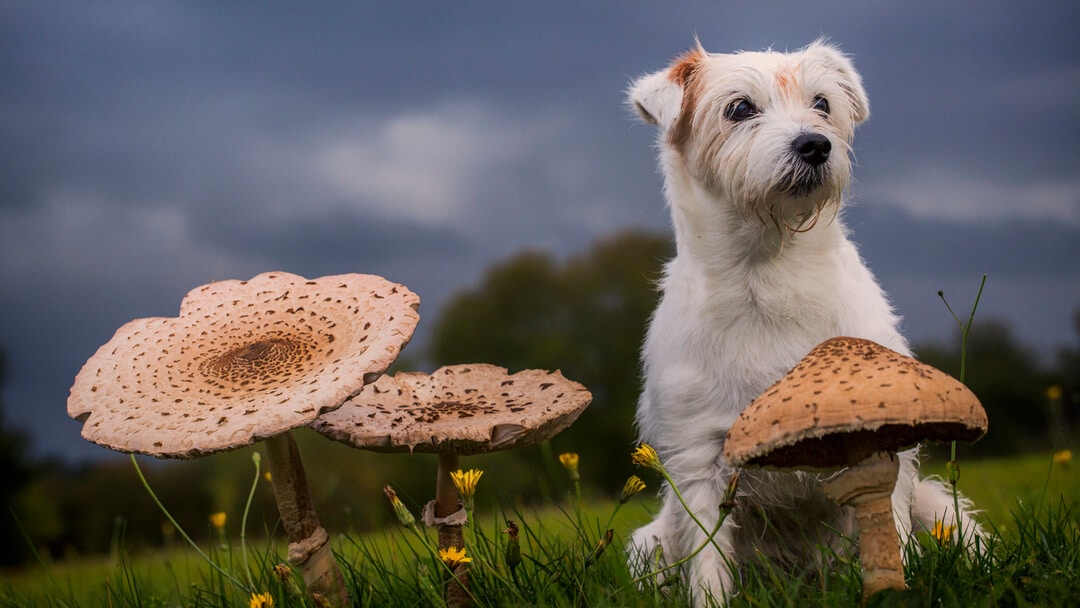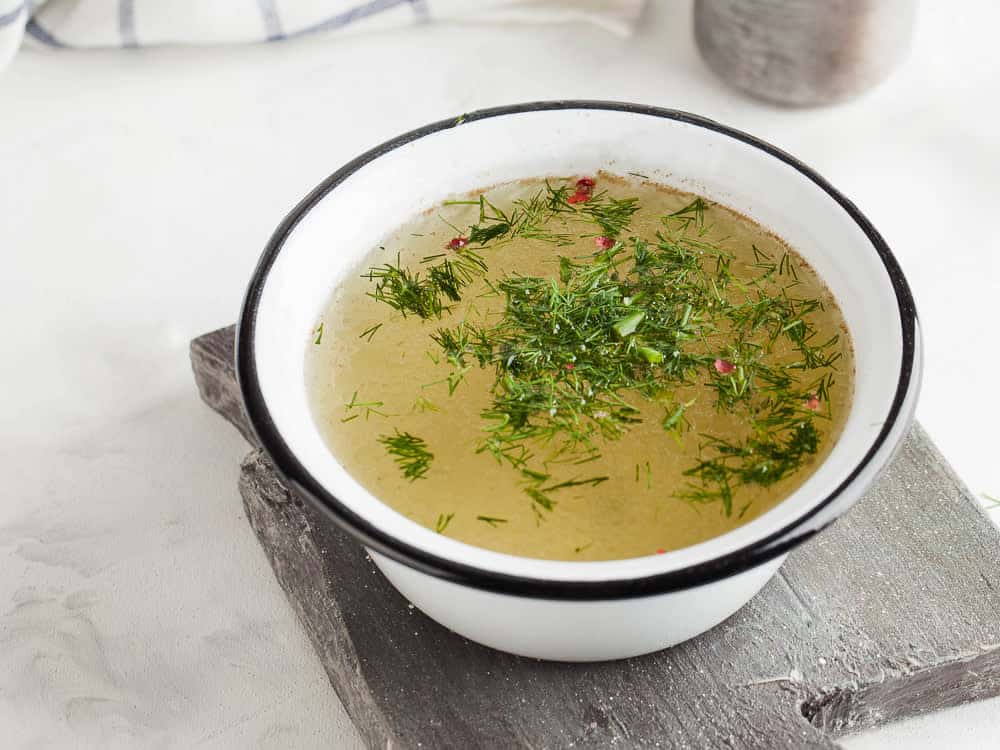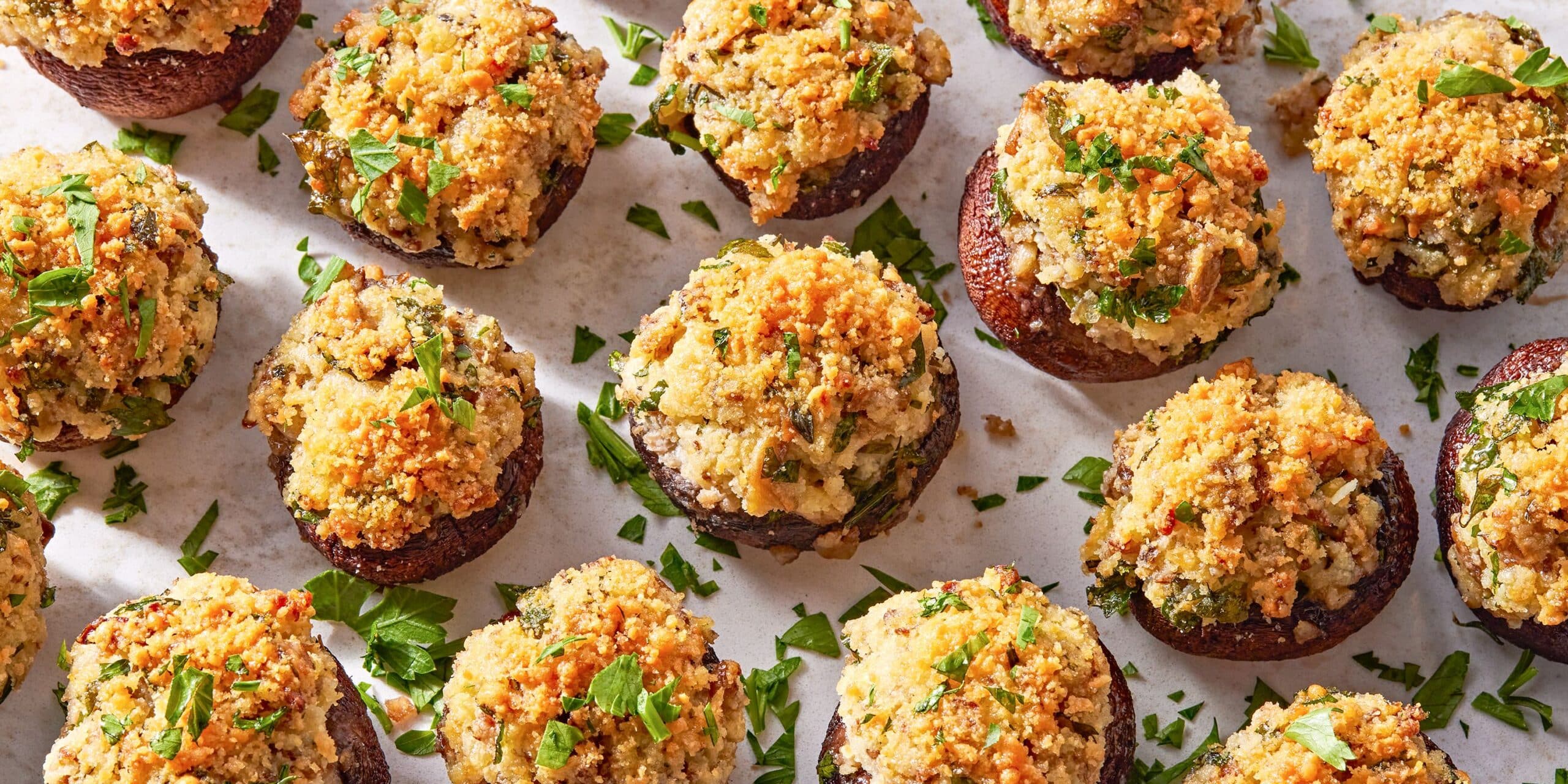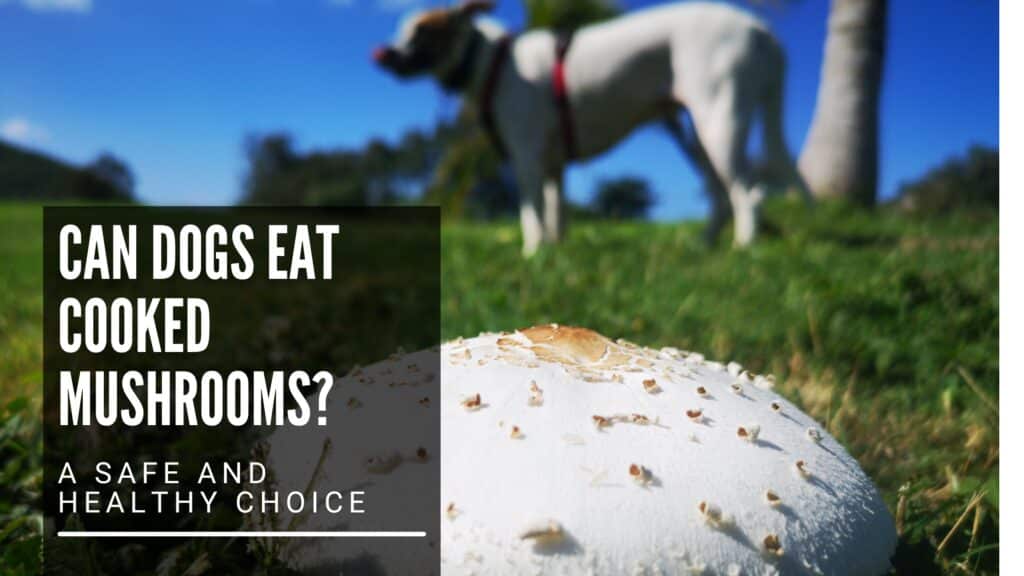Considering new additions to your dog’s diet can sometimes feel like navigating a nutritional maze. However, cooked mushrooms might just be the straightforward, healthful choice you’re looking for. In this guide, we’ll delve into which mushrooms are safe for dogs, how they can benefit your pet’s health, and the best ways to prepare them. From boosting their immune system to enhancing their digestion, mushrooms have a lot to offer. Let’s explore how to introduce this tasty fungus to your dog’s menu safely and effectively.
Quick Summary
- Safe Types: Only certain mushrooms that are safe for human consumption are also safe for dogs.
- Health Benefits: Cooked mushrooms offer vitamins and minerals that can boost a dog’s health.
- Preparation: Proper cooking methods are crucial for making mushrooms safe for dogs.
- Risks: Awareness of toxic mushrooms and signs of poisoning is essential.

What Mushrooms Are Safe for Dogs?
Choosing the right mushrooms for your dog is crucial for their safety and health. Only certain mushrooms deemed safe for humans are appropriate for canine diets. Here’s a detailed list of mushrooms that can be safely given to dogs, provided they are cooked properly:
- Button Mushrooms (Agaricus bisporus): These are the most common mushrooms found in grocery stores and are safe for dogs. They must be cooked thoroughly to break down any potential toxins.
- Cremini Mushrooms (Baby Bella): A variant of the button mushroom, cremini mushrooms are just as safe and offer a slightly richer flavor.
- Portobello Mushrooms: These are fully grown cremini mushrooms with a large, meaty cap. They’re excellent for dog-friendly recipes when grilled or baked.
- Shiitake Mushrooms: Known for their rich texture and bold flavor, shiitake mushrooms are safe for dogs if the stems are removed and they are cooked well. Shiitake mushrooms should be given in moderation, as they are richer than other varieties.
It is vital to avoid any wild mushrooms, as they can contain toxins that are harmful or even fatal to dogs. Additionally, never feed your dog raw mushrooms of any kind, as raw fungi can contain harmful pathogens and are difficult for dogs to digest. Always cook mushrooms thoroughly without any added oils, seasonings, or spices that could harm your dog, such as onions or garlic. By adhering to these guidelines, you can safely introduce these mushrooms into your dog’s diet.
Health Benefits of Cooked Mushrooms for Dogs
Cooked mushrooms can provide significant health benefits to dogs when included as part of a balanced diet. These fungi are not only low in calories but also packed with vital nutrients that support canine health. Here’s how cooked mushrooms can benefit dogs:
- Rich in Vitamins and Minerals: Mushrooms are an excellent source of B vitamins, including riboflavin (B2), niacin (B3), and pantothenic acid (B5). These vitamins help maintain healthy skin and facilitate proper brain function. Mushrooms are also rich in minerals like selenium, which is known for its antioxidant properties that help protect body cells from damage.
- Immune System Support: Mushrooms contain antioxidants that help boost the immune system. Selenium and vitamins A and D in mushrooms contribute to an enhanced immune response, helping your dog fight off illnesses more effectively. Study on Mushroom Antioxidants
- Digestive Health: Mushrooms have a high fiber content, which can help regulate a dog’s digestive system, aiding in bowel movement regularity and overall digestive health. The fiber in mushrooms also contributes to weight management by promoting a feeling of fullness.
- Anti-Inflammatory Properties: Some mushrooms, such as shiitake, have anti-inflammatory properties due to compounds like ergothioneine. Regular consumption of cooked shiitake mushrooms can help reduce inflammation in dogs, which is beneficial for those with arthritis or other inflammatory conditions. Study on Anti-inflammatory Properties of Shiitake
When incorporating mushrooms into your dog’s diet, it is crucial to ensure they are cooked thoroughly to enhance digestibility and prevent potential toxicity. Always consult with a veterinarian before introducing new foods to your dog’s diet, especially if your pet has specific health conditions or dietary needs. By understanding the nutritional benefits and following proper preparation guidelines, you can safely use mushrooms to enrich your dog’s diet.
Preparing Mushrooms for Dogs
Proper preparation of mushrooms is crucial to ensure they are safe and beneficial for your dog’s health. Here is an in-depth guide on how to prepare mushrooms for canine consumption:
Choosing the Right Mushrooms: Always start with mushrooms that are known to be safe for dogs, such as button, cremini, portobello, and shiitake mushrooms. Ensure that these are purchased from reliable sources to avoid any contaminated or toxic varieties.
Cleaning: Before cooking, thoroughly wash the mushrooms to remove any dirt or debris. It’s important to clean them under running water and gently wipe with a soft brush or cloth if necessary. Avoid soaking them as mushrooms absorb water quickly, which can affect their texture and nutritional value.
Cutting to Size: Slice the mushrooms into smaller pieces that are appropriate for your dog’s size. This helps ensure that they can be easily chewed and digested, reducing the risk of choking.
Cooking Method: Cooking mushrooms is essential, as it breaks down tough cellular walls, making them easier for dogs to digest and helping eliminate any potentially harmful pathogens.
Steaming: Steaming is one of the best methods to prepare mushrooms for dogs. It preserves most of the nutrients and makes the mushrooms soft enough to eat.
Boiling: Boiling is another safe option. Simply boil the mushrooms in water for at least five to ten minutes until they are soft. Avoid adding any salt, spices, or seasoning.
Sautéing: If you prefer to sauté mushrooms, use a minimal amount of safe oils like coconut oil. Sauté until the mushrooms are soft. Ensure no harmful additives like onions or garlic powder are included in the preparation.
Cooling Down: After cooking, let the mushrooms cool down to room temperature before serving them to your dog. This prevents any risk of burning their mouth.
Frequency and Quantity: Introduce cooked mushrooms into your dog’s diet gradually. Start with small amounts to monitor how they react to this new food. Depending on their size and dietary needs, a few small pieces of mushroom can be a healthy addition to their regular meals, but should not constitute a major part of their diet.
By following these preparation steps, you can safely incorporate nutritious mushrooms into your dog’s meals. Always observe your dog after introducing any new food items into their diet and consult with your vet if you notice any adverse reactions.
Recipes: Cooked Mushroom Dishes for Dogs
Adding mushrooms to your dog’s diet can be both nutritious and enjoyable. Here are a couple of carefully crafted, dog-friendly recipes that include safely prepared mushrooms. These dishes are simple to make and provide a healthy variety to your pet’s meals.

1. Mushroom Bone Broth
Bone broth is a soothing and nutrient-rich treat for dogs. Adding mushrooms to this broth can enhance its flavor and nutritional profile.
- Ingredients:
- 1 cup of sliced button mushrooms
- 2 pounds of beef marrow bones or chicken bones
- 2 tablespoons of apple cider vinegar (helps extract nutrients from the bones)
- Water sufficient to cover the bones
- Optional: A few parsley leaves for extra flavor
- Directions:
- Place the bones in a large pot and cover them with water. Add the apple cider vinegar and let sit for 30 minutes; this helps leach nutrients from the bones.
- Bring the water to a boil, reduce the heat, and simmer gently for an hour.
- Add the sliced mushrooms and optional parsley, then continue to simmer on low heat for another 10 hours. This slow cooking process ensures all the nutrients are extracted.
- Strain the broth, discarding the solids, and allow it to cool.
- Serve the broth at room temperature, adding a nutritious and flavorful boost to your dog’s regular meals.

2. Stuffed Mushrooms for Dogs
Stuffed mushrooms make a fantastic treat for dogs when prepared with suitable fillings.
- Ingredients:
- Large portobello mushroom caps (stems removed)
- Cooked chicken or turkey breast (finely chopped)
- A sprinkle of finely chopped parsley
- A small amount of pureed pumpkin
- Directions:
- Preheat your oven to 350°F (175°C).
- Clean the mushroom caps gently with a damp cloth; make sure they are free of any dirt.
- In a bowl, mix the chopped meat, parsley, and pumpkin until combined.
- Stuff the mushroom caps with the mixture and place them on a baking tray.
- Bake in the preheated oven for 15-20 minutes, or until the mushrooms are soft and the filling is heated through.
- Let them cool completely before serving to your dog as a special snack or part of their meal.
These recipes are designed to be easy to prepare and safe for your dog, offering a mix of taste and health benefits. Always introduce new foods gradually and observe your dog for any adverse reactions. If all goes well, these mushroom dishes could become a much-loved addition to your dog’s diet.
Risks and Considerations
While mushrooms can be beneficial, there are risks involved, particularly with wild mushrooms, which can be deadly. Symptoms of mushroom poisoning in dogs include vomiting, diarrhea, lethargy, and seizures. Immediate veterinary care is crucial if poisoning is suspected.
Conclusion
Incorporating cooked mushrooms into your dog’s diet can be a delightful way to enhance their nutritional intake, provided it’s done with care and precision. Mushrooms offer a host of vitamins and minerals beneficial for your dog’s immune system and overall health, but they must be prepared correctly to be safe and digestible. Always choose safe, non-toxic varieties and ensure they are thoroughly cooked without any unsafe additives. Before making mushrooms a regular part of your dog’s meals, it’s wise to consult with a veterinarian to tailor their diet to their specific health needs. Properly prepared, mushrooms can be a tasty and nutritious treat for your canine companion.

